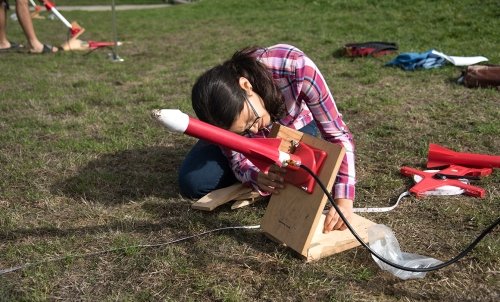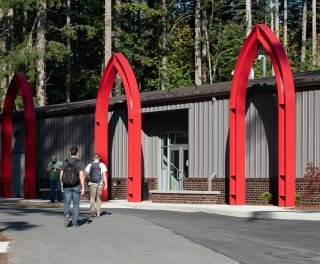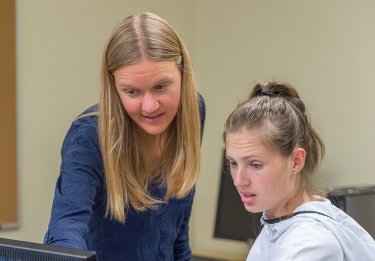
Physics
Physics seeks to explain the workings of the physical world encompassing a vast scale from elementary particles to the cosmos. Physics interacts with fields such as chemistry, biology, astronomy and engineering to provide a background for study in these areas.
Why Saint Martin's University?
Studying physics is an excellent option for students majoring in related disciplines who want to deepen their understanding of underlying fundamentals. Students who minor in physics develop a deeper understanding of core physics principles and develop skills used by physicists, including laboratory techniques, mathematical and computational modeling, and research and presentation skills.
Career paths
A background in physics is suitable for almost any career path. Students that study physics learn logical and critical thinking skills. According to the American Physics Society (APS), this allows physicists to bring a broad perspective to almost any problem without being bound by the context of the situation. Being able to problem solve is a desirable attribute in any career.
Engineering and chemistry majors who minor in physics also set themselves apart from their peers by better understanding the physics that underlies many of the things they use regularly. This additional knowledge is helpful for students interested in graduate school or who want to accelerate their post-graduation careers. Math majors who minor in physics obtain a deeper appreciation for physical applications of their discipline, and it serves to set themselves apart from their peers as well.
For a complete list of professional applications, visit "What Can I Do With Major?". For additional information about how Saint Martin’s can help you find the career for you, visit our Center for Career and Calling.
Physics Requirements
Lower-division courses (21 credit hours)
- MTH 171: Calculus I
- MTH 172: Calculus II
- MTH 271: Calculus III
- PHY 171/171L: Introductory Physics/Laboratory
- PHY 172/172L: Introductory Physics/Laboratory
Upper-division courses (13 credit hours)
13 credit hours chosen from the following:
- PHY 303: Modern Physics with Laboratory
- PHY 314: Classical and Computational Mechanics
- PHY 399: Explorations in Physics
- Applied physics course: PHY 355: Solid State Physics -OR- PHY 365: Astrophysics -OR- PHY 395: Special Topics (with permission of chair)
Physics at a Glance
- Program Type
- Minor
- Campus
- Main (Lacey)
- Type of Instruction
- In Person
- School
- College of Arts and Sciences

 Outcomes
Outcomes
 Community
Community





